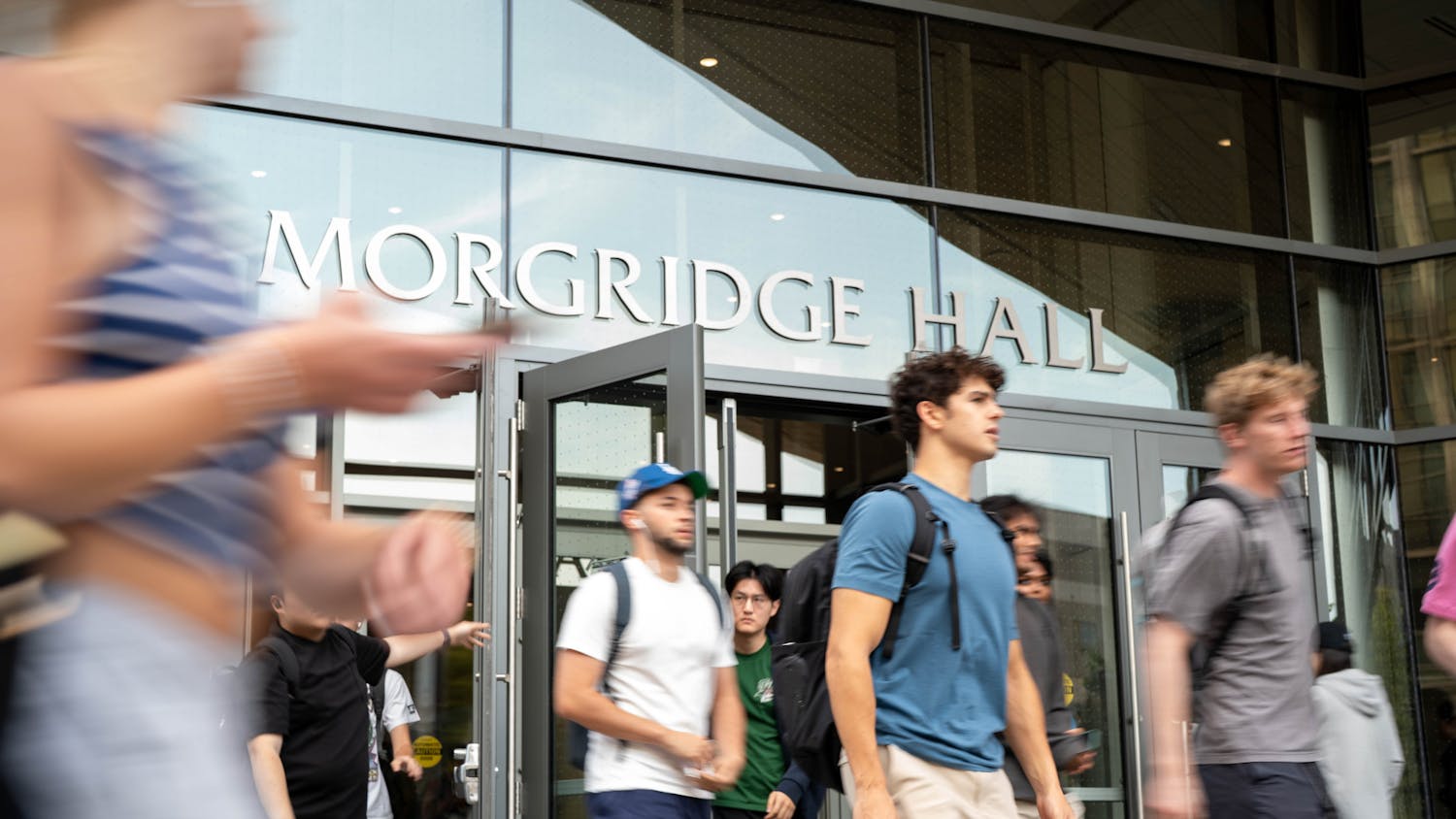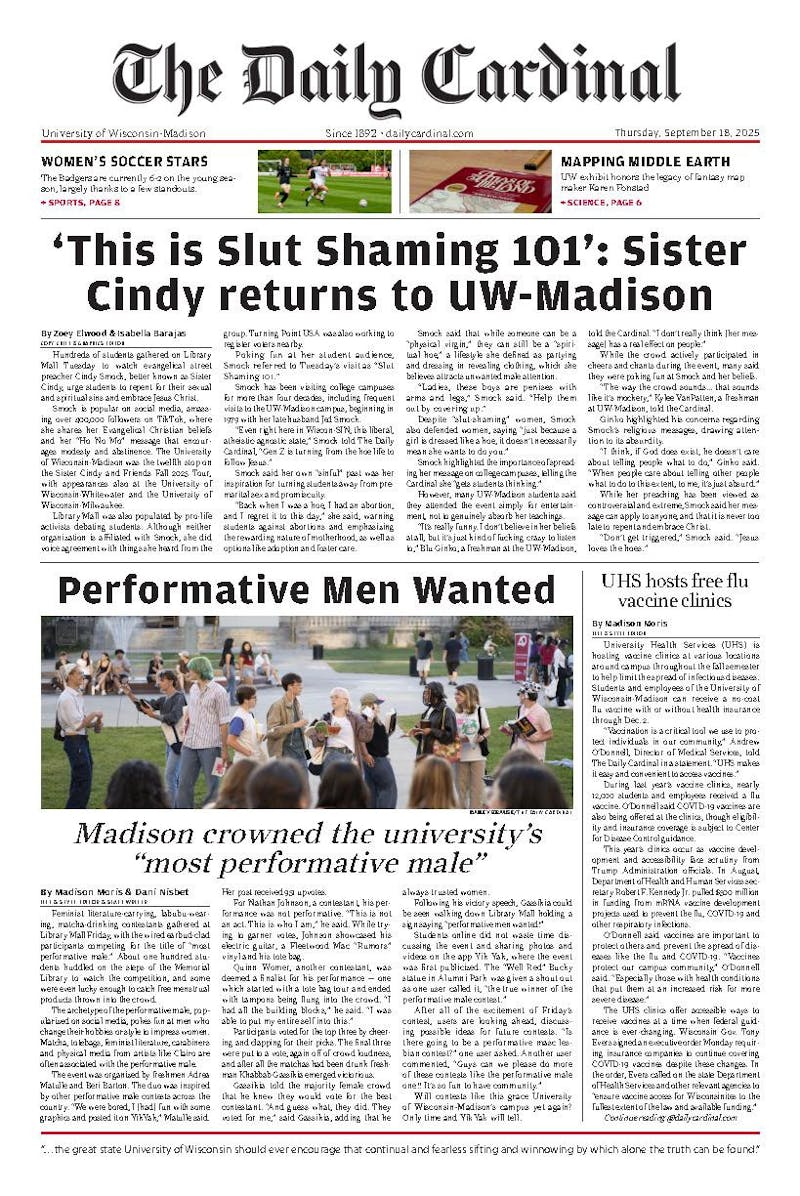Welcome, freshmen, to the great UW-Madison! With the best and brightest minds filling classrooms and first-rate professors, many have called us the Harvard of the Midwest. During your four-year stint at this university, you can expect more of the same... maybe.
See, there has been a depressing trend the past few years here at UW-Madison. Due to low salaries, many of our best professors—seven from the political science department alone—have left. According to a report from the Association of American University Professors, UW-Madison's median salary is 10.2 percent lower than its peer institutions, which is approximately $14,000 less per year for full professors.
This means UW-Madison is at risk of losing many high-quality professors, according to Gary Sandefur, dean of the College of Letters and Science.
""Even though many faculty are very loyal to this university and love this place and love being a part of it, it's hard to pass up a higher salary,"" he said.
Losing these professors decreases UW-Madison's credibility and potentially devalues your education. After working so hard to get in here, I'm sure that's not something you wanted to hear. Unfortunately, it is largely out of your hands.
The university has many sources of revenue. The three main areas are federal funds, state funds and tuition. Since UW-Madison is a globally recognized research institution, most of our federal funding goes toward research. That leaves state funding and your tuition as the only options to help bail out the sinking professor ship.
Since the 2002-'03 academic year, in-state tuition has increased 52 percent. During that same time, while state funding has increased by $25 million, it has gone down 4 percent as part of the overall university budget. If it had stayed at past percentages, UW-Madison would have an additional $91.3 million from the state.
In order to increase professor salaries to the average of our peer institutions, we need only $21 million, which would leave more than $70 million to hire more faculty, decrease class sizes or (gasp!) lower tuition.
However, in order to get this money from the state we need a drastic change in the ideological make-up of the state Legislature, according to state Rep. Spencer Black, D-Madison.
""The university's ability to offer competitive compensation to faculty has been harmed by the failure of the Republican-controlled legislature in the last two budgets to adequately fund the university,"" said Black, who is on the Assembly Committee of Colleges and Universities.
Currently, Democrats control the state Senate and Republicans control the state Assembly. This summer the state Legislature will consider the budget for the upcoming year, which includes a significant increase in state dollars for UW-Madison. Although the Senate will most likely approve the funds, the Assembly probably will not, according to Black.
If you're wondering why Republicans would ever want to cut funds from the university, I can give you the answer in one word—taxes. As former gubernatorial candidate Mark Green reminded us constantly last year, ""Wisconsin is a tax hell.""
According to the Wisconsin Taxpayers Alliance, Wisconsin has the fifth highest tax burden in the United States. The university has to compete with other important areas such as health care and K-12 education for these tax dollars. Many people recognize this dilemma.
""I think the state has done the best it can given the revenue constraints that it's dealing with,"" Sandefur said. ""The other option to increase revenue is to raise tuition and of course there's a lot of pressure to keep tuition as low as possible.""
So raise taxes or raise tuition—those seem to be the only options available to retain faculty and remain a prestigious university. What does the future hold?
""Over a period of 10 or 12 years, if our salaries stay this low then we'll lose significant numbers of really good people,"" Sandefur said. ""Then it's very hard to recover from that. We have time to reverse that situation but we need to do it very quickly.""
Ultimately, it comes down to priorities and lately we've been on the lower end of the Republican priority list. Luckily, state elections are just around the corner, and we have the power to elect new representatives. So study hard and make a difference—prove to them you're worth the investment.





